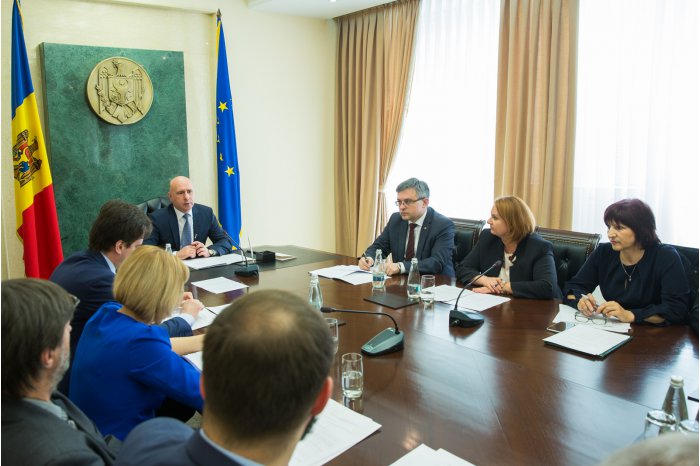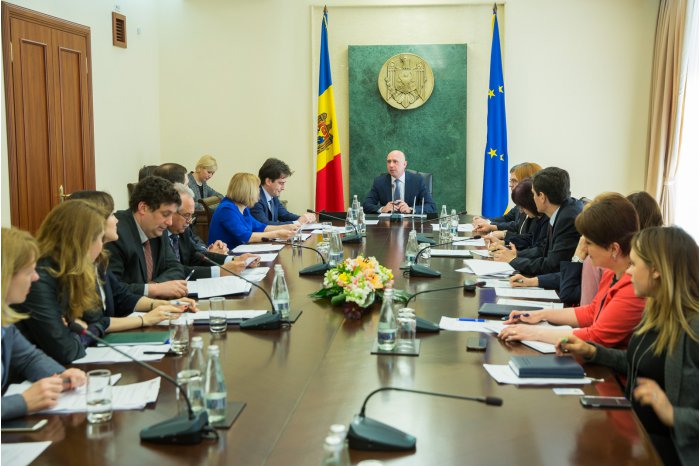Draft law on amendment of labour code to be put up for public discussion in Moldova
18:33 | 10.04.2017 Category: Official
Chisinau, 10 April /MOLDPRES/ - Prime Minister Pavel Filip today chaired a meeting of the working group on the amendment of the Labour Code. According to representatives of the business environment, the present labour code contains a string of deficiencies which create confusions, contradictions and difficulties in enforcement. To overcome these gaps, the working group, set up under government instruction, held 11 meetings and made proposals on the amendment of 36 articles from the labour legislation. The goal of these changes is to modernize the labour legislation and re-bring balance between the rights and obligations of wage earners and employers, the government’s communication and protocol department has reported.
Prime Minister Pavel Filip said that it is important that the state exercises the role of regulator, so that, on the one hand, the employees’ rights are protected, and on the other hand, the employers’ interests are to be taken into account. Such an approach would stimulate employers to carry out a transparent activity, in order to avoid the payment of salaries in envelopes and tax dodging and would also contribute to promoting investments and creating new jobs.
Following the discussions, the participants in the meeting ruled that the working group would continue its activity, given that the improvement of the legislation is a continuous process. The priority is to reduce the list of acts the employers should have in the labour relations sector, which are checked by labour inspectors.
The draft on the amendment of the Labour Code will be proposed for discussions within the national tripartite commission for public consultations, Government – Trade Unions – Employers. In parallel, the document will be submitted to competent institutions for approval.
At the same time, some representatives of business people who attended the meeting stressed the need to work out a new Labour Code, according to the best international practices, by involving foreign and local experts in the process, contracted with the help of development partners.


